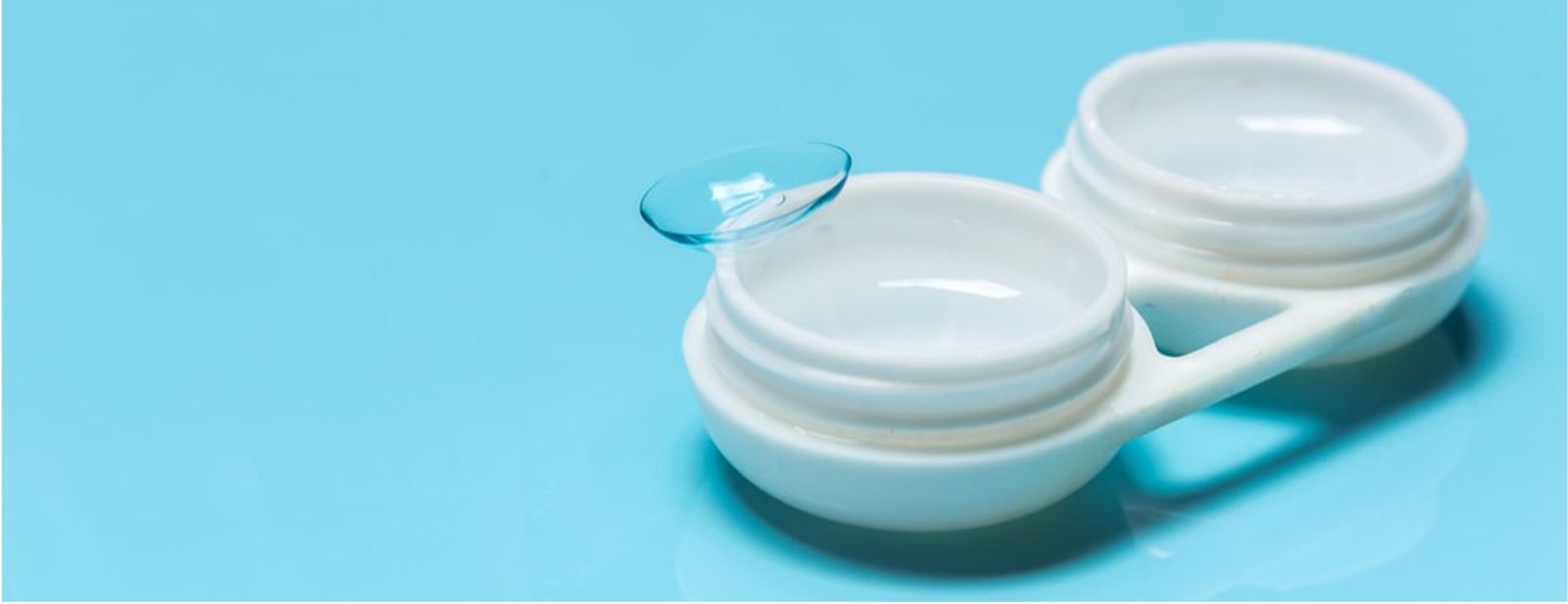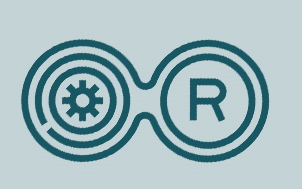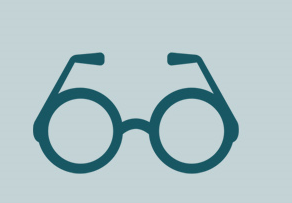
DO YOUR GLASSES DEFINE YOU?
Those frames are a part of your identity, right? They affect how you see yourself, and how the world sees you. Whether you’ve grown up wearing glasses or only got them later in life, it’s hard to imagine doing anything without them. But it doesn’t have to stay that way. Contact lenses make it possible to enjoy some new freedoms in life while still seeing things clearly.
WHAT ARE CONTACT LENSES?
A contact lens is a thin, curved lens that is placed directly onto the surface of your eye. They offer many of the same benefits as glasses, but also have unique features that some people seem to prefer. The choice often comes down to your lifestyle and personal preferences.
Contacts, as most people call them, come in hard and soft forms. Hard lenses are made from hard plastic, and are designed to fix specific vision issues. Soft contacts are made from hydrogel, which is basically soft plastic. They are by far the most popular type of contact lens. Like glasses, you’ve got to select the right contact lens based on comfort and visual clarity.
TYPES OF SOFT CONTACT LENSES:
● Monthly contacts - These are used for the period of a month, but must be removed and cleaned daily.
● Transitional contacts- These react and adapt to ultraviolet light, making it easy for you to step outside without harsh sunlight punishing your eyes.
● Multifocal contacts - These blend two or more prescriptions, allowing you to focus on objects at all distances.
● Tinted contacts - These allow you to change the colour of your eyes, while also correcting your visual impairments.
● Cosmetic contacts - These are worn for purely for show in fashion, dress-ups or show business.They allow you to change the colour and look of your eyes.
HOW DO CONTACT LENSES COMPARE TO GLASSES?
The decision to wear contact lenses comes down to personal choice, comfort, and lifestyle needs. Some people choose glasses and stick to them, while others use both depending on the situation, setting, or even just what they feel like on a particular day. Before you decide, here are some comparisons between glasses and contact lenses.Contact lenses are available in the same prescription strength as glasses in most cases, but the difference lies in their field of vision. A contact lens moves with your eye, which helps sharpen your vision, and keep your view focused. That means you don’t have to contend with things like reflections or steam on your lenses anymore.
When you have glasses, you need to know where they are at all times. Not just so you can use them, but so that you don’t sit on them, or lose them, or drop them down the side of the car seat. The freedom you get from contact lenses is one of the best things about them. You wear them most of the day until you take them out before bed. That sense of freedom opens up other avenues, like freedom of movement! Contacts make it possible to exercise and play sports with clear vision and no worries about your glasses falling off or fogging up. So go ahead and hit the gym or the field.
Contact lenses allow you to achieve a more natural look. This affects the way you see yourself, and has the knock-on effect of changing how others see you too. That’s the confidence factor of contact lenses.
Contact lenses can cost more overall compared to prescription glasses, and they do require a bit more upkeep. Depending on the type of contact lens, taking out and storing your contacts all the time does take some commitment. Hygiene is essential for keeping them clean and in good condition. If not maintained and used properly, contacts can cause irritation and dry eye syndrome amongst other problems.
THE COMPARISON AT A GLANCE

CONTACT LENSES:
- conform to the curve of your eyes and move with them
- don’t block your vision like the frame of your glasses do
- don’t distort your vision or reflect inwards like glasses can
- don’t get in the way when playing sports and exercising
- are more versatile and give you a more natural look
- require regular cleaning and proper storage depending on which type you use

GLASSES:
- require less care and maintenance than contact lenses
- are overall less expensive than contact lenses
- can offer some protection from the environment hazards, like wind and dust
- can distort your peripheral vision because of their distance from your eyes
- can be affected by weather conditions like rain or fog
- require you to touch your eyes less than contact lenses

WHY CHOOSE CONTACT LENSES?
Contact lenses appeal to people for many reasons. Some people want to change the appearance of their eyes, or actively avoid wearing glasses as much as possible. Others choose them for the visual benefits, or the things you can do while wearing them. Here is a range of reasons to consider contacts and change the way your eyewear shapes your lifestyle:
- The real you - One of the main reasons people prefer contact lenses is that they fix issues with your vision without being visible. That means people will see the natural appearance and size of your eyes, which is an attractive feature we wouldn’t want to miss.
- The real world - The distance between your eyes and the lens of your glasses can alter how you see things. Contact lenses are placed directly onto your eyes, and therefore they don’t change the size or shape of the things that you see.
- Unlimited view - Contact lenses offer improved peripheral vision, allowing you to see without restrictions to your field of view. This really helps with things like driving or playing sports.
- Getting active - Contact lenses are very liberating for active people. Glasses usually fall off when trying to be active or play sports, so contacts make life a lot easier at the gym or on the playing field.
- Simple comforts - Contact lenses can lift your comfort levels. Anyone that’s worn glasses for long periods of time will tell you how the weight of them can hurt your ears or the bridge of your nose after a while.
- Anything goes - The shape and function of glasses limits what other head accessories they can be used with. Switching to contact lenses means you can freely use your sunglasses or helmets etc. without worrying how your glasses will fit into the picture. You’ll also save on having to fit them with prescription lenses too.
- A new look - Contact lenses allow you to safely change the colour and appearance of your eyes. It’s a cosmetic solution that really suits our creative generation, where everyone is set on trying to stand out.
WHAT YOU NEED TO KNOW
Chat to your optometrist to ensure you get the right contact lenses and learn how to properly fit them from a professional.
- Wash, rinse and properly dry your hands before handling contact lenses.
- Use your fingertip to handle the contact lens. Never use your fingernail or tweezers etc.
- Ensure the contact lens is clean and moist before use. Never use damaged contact lenses.
- When you aren’t using them, place your contacts in their case or a lens holder.
- Clean and store your contacts using saline solution, daily cleaner, multipurpose solution, or hydrogen peroxide solution. Your type of contact lens determines which one is suitable.
ARE THERE DANGERS TO WEARING CONTACT LENSES?
If not properly maintained and managed, contact lenses can cause eye irritation, dry eye syndrome, and other more serious eye issues. Following the advice of a medical professional is key.
HOW LONG IS IT SAFE TO WEAR CONTACT LENSES FOR?
Contact lenses can be generally be worn for 14-16 hours, but it’s best to consult with your doctor for a professional recommendation. Most contact lenses should be removed before sleeping.
CAN CONTACT LENSES FALL OUT OR BREAK?
Contact lenses rarely fall out; it’s a major part of their appeal. Odd instances like rubbing your eye too hard might dislodge a contact lens. Thankfully, they’re very difficult to break on account of what they’re made of.
IS THERE A CLEAR WINNER?
This comes down to you. It’s a question of personal taste and lifestyle preferences. There is absolutely nothing wrong with deciding that glasses do it for you. On the other hand, choosing contact lenses could create some new and exciting changes to your way of life, your way of seeing the world, and your way of seeing yourself.If you haven’t had your eyes tested recently and you’re not sure if you need prescription lenses or qualify for contact lenses, book an eye test online today.
Date Published: 06 January 2020
